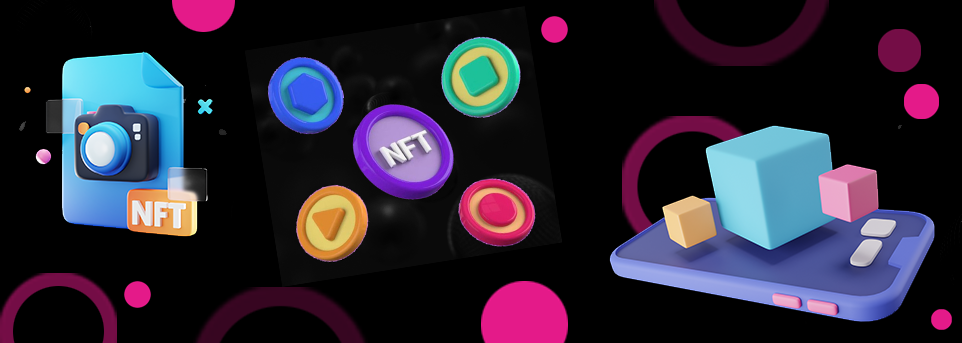Non-fungible tokens (NFTs) are digital assets that are unique and cannot be exchanged for other assets on a one-to-one basis. They are stored on a blockchain and can represent a wide range of things, including art, collectibles, music, videos, and even virtual real estate.
One use case for NFTs is in the art world, where they have gained significant attention in recent years. NFTs enable artists to sell digital copies of their artwork directly to collectors, while maintaining ownership and control over the distribution of the artwork. This allows artists to bypass traditional gatekeepers in the art industry, such as galleries and auction houses, and to potentially earn more for their work. NFTs also enable collectors to own a unique, verifiable, and scarcity-backed digital asset that can potentially increase in value over time.
Another use case for NFTs is in the collectibles market. Companies and individuals have started issuing NFTs for various types of collectibles, including sports cards, gaming items, and even virtual pets. These NFTs can represent ownership of the physical item, or they can represent a digital-only version of the collectible. In either case, NFTs enable collectors to own and trade unique items that are scarce and have a clear provenance.
NFTs can also be used in the music industry to enable artists to sell unique digital copies of their music directly to fans. This can help artists to earn more for their work, while also giving fans the opportunity to own a unique and verifiable digital asset.
In the gaming industry, NFTs can be used to represent in-game items, such as weapons, armor, and other virtual assets. These NFTs can be bought and sold on secondary marketplaces, and can potentially increase in value over time.
NFTs can also be used in virtual real estate, where they can represent ownership of virtual land, buildings, or other assets in virtual worlds or online games. These NFTs can be bought and sold on secondary marketplaces, and can potentially increase in value if the virtual world or game becomes more popular over time.
Overall, NFTs have the potential to revolutionize the way we think about ownership and scarcity in the digital world. They enable creators to sell unique digital assets directly to their fans, and they enable collectors to own and trade unique and verifiable digital assets that can potentially increase in value over time. As such, NFTs have a wide range of potential uses and applications, and it will be interesting to see how they are adopted and used in the future.

